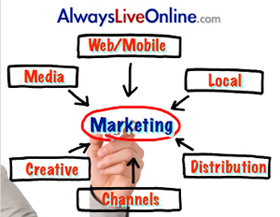More About HubSpot… Internet Marketing Company
When/Who?
The founders of HubSpot® met at MIT in 2004. Both were interested in the transformative impacts of the internet on small businesses and were early students of Web 2.0 concepts. The discussions and early work were ongoing for two years and in June of 2006 the company was officially founded and funded. For more information about them, see our management page.
Why?
The most interesting aspect of the internet’s impact on business from HubSpot’s perspective is in how it has changed the nature of shopping and subsequently the shape of every vendor’s sales funnel. Ten years ago, if a company was interested in buying a new product/service, it started by attending trade shows, reading industry journals, and going to seminars to learn more. Early in the shopping process, it would engage directly with the key vendors’ (sales) people who would feed them asymmetric information from the top of their sales funnel to the bottom of their funnel. Today, that same process looks very different. The potential customer starts in Google by searching on relevant keywords. The prospect would spend time on each vendor’s site, subscribe to the most interesting vendor blogs, subscribe to the vendor’s customers’ blogs, join an industry discussion forum, etc. Relatively late in the prospect’s decision cycle, it would engage the vendor’s (sales) people directly. That first vendor conversation today is much different from the one a decade ago because the prospect often knows as much about the vendor’s product as the sales rep does and the prospect is already much more “qualified.”
The result of this shift in shopping patterns is that the internet has tended to make every marketplace more “efficient.” Just as Ebay makes the niche market for Pez dispensers, WWI shovels, and 1975 World Series ticket stubs more efficient, the internet as a whole is making the niche markets for intellectual property law, system dynamics consulting, and food brokerage more efficient. It used to be that the size of your firm’s sales force was the key to finding the most new customers, but that is not necessarily always the case today. The good news for small businesses is that on the internet, no one can tell if you are a one person sole proprietorship or a 1000 person consultancy.
It turns out that most small businesses (and startups) have relatively niche-y products that they generally sell to companies in their rolodex and companies two degrees away from their rolodex. The internet disproportionately favors small businesses since it enables them to position their niche goods to people shopping for that particular niche good regardless of the numbers of degrees of separation from their rolodex.
For more information about why we started HubSpot, read this blog entry on how the internet is transforming small business.
What?
HubSpot’s vision is to provide a (killer) marketing application and provide great advice to small businesses enabling them to leverage these disruptive effects of the internet to “get found” by more prospects shopping in their niche and to convert a higher percentage of prospects into customers.
Most small businesses have a website that behaves like their old paper-based brochures, but just sitting online. It is rarely updated, is not given significant visibility by the search engines, has low traffic levels, does not encourage return visits, does not enable/track conversions, etc. What HubSpot does is transform that relatively static website into a modern marketing machine that produces the right leads and helps convert a higher percentage of them into qualified opportunities.
For more information about what we are building, see our products page and see this article on our strategy for success.
Where?
The company is based in Cambridge, Massachusetts, directly across from the MIT campus where it was envisioned. For directions, see our contact us page.





















You must be logged in to post a comment.